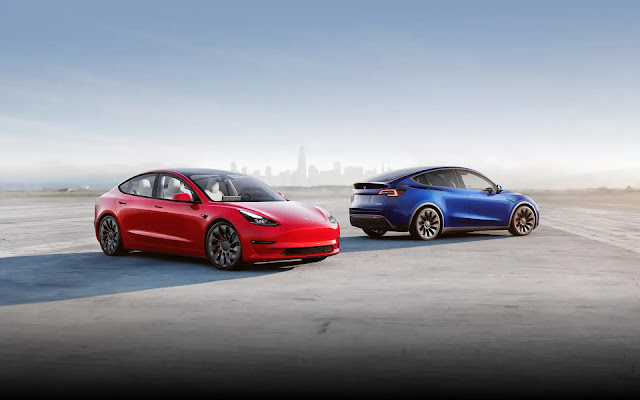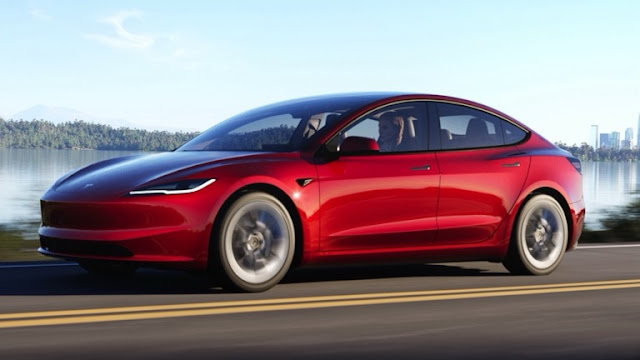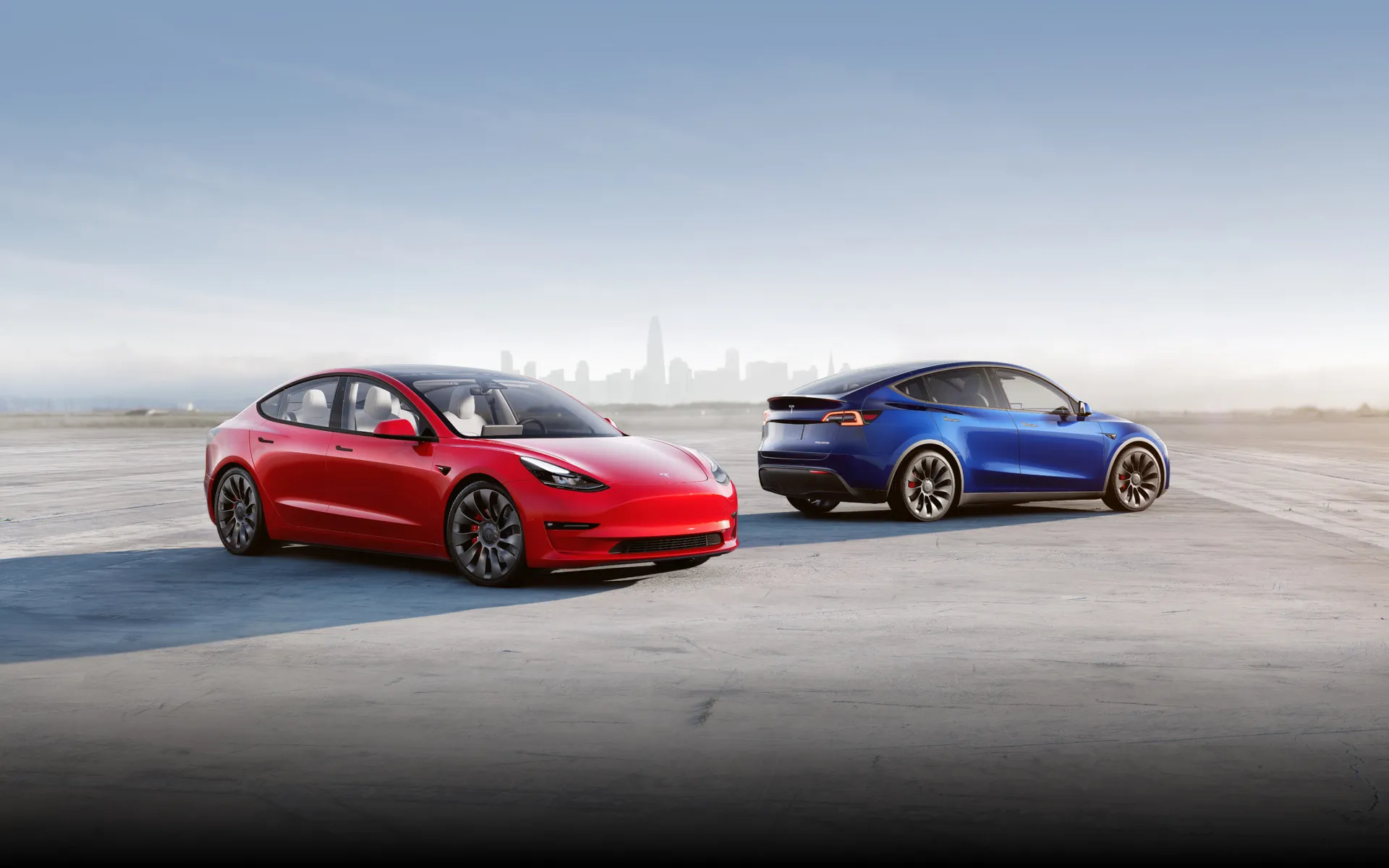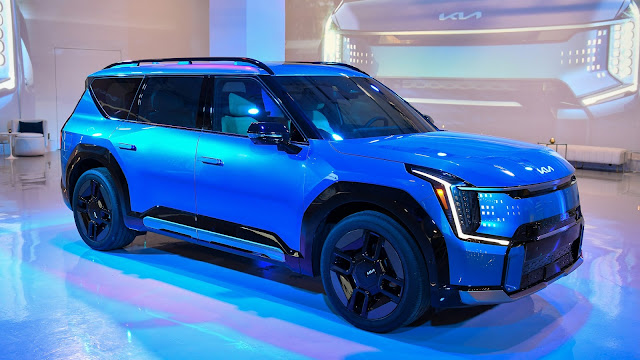
Best Electric Cars and EVs for 2024
Purchasing a new electric vehicle may come with a hefty price tag, but it’s an investment worth making. Here’s what to consider and our top picks for the best EVs on the market.
Table Of Contents:
- Introduction : Best Electric Cars and EVs for 2024
- What is the best overall electric car?
- Tesla’s Model 3 and Model Y review
- 2024 Tesla Model 3 Standard Range review
- Hyundai Ioniq 5 review
- Hyundai Kona Electric 2024 review
- BMW i7 Xdrive 60 2024 review
- Rivian R1T 2024 review
- Tesla Model Y Long Range AWD 2024 review
- Kia EV9 2024 review
- Porsche Taycan GTS 2024 review
- How to Choose an Electric Car?
- How we test electric cars?
What is the best overall electric car?
 |
|
Tesla’s Model 3 and Model Y – Best Electric Cars and EVs for 2024 |
Tesla’s Model 3 and Model Y Review
Best electric cars of 2024
 |
| Tesla Model 3 Available since September 2023 |
2024 Tesla Model 3 Standard Range Review
Starting at $41,630, the 2023 Tesla Model 3 Standard Range sets a high bar for electric vehicles, often costing less than some gasoline-powered sedans in its class after accounting for up to a $7,500 federal tax credit and any applicable state EV incentives. For those with a bit more flexibility in their budget, there are options to upgrade to longer-range and more powerful dual-motor variants. However, the Standard Range model’s 272 miles of range is more than sufficient for everyday driving and occasional road trips. Its impressive efficiency of 4 miles per kWh ranks it as one of the top performers in terms of operating cost.
This model comes equipped with a single-motor, rear-wheel-drive setup, achieving a 0 to 60 mph time of 5.8 seconds. While not neck-snapping, it provides brisk acceleration ideal for smooth merges and overtaking. It also features the latest dashboard technology and driver assistance features found in Tesla’s more premium models.
Pros
- Excellent Performance:Offers impressive range and acceleration for the price.
- Affordable Price: Enhanced value with federal tax incentives.
- Supercharger Network: Access to the extensive and reliable Supercharger fast charging network.
Cons
- Touchscreen Overload: Essential functions are controlled via the touchscreen, which can be cumbersome.
- Build Quality Issues: Inconsistent build quality reported.
- Expensive Upgrades: Autopilot and Full Self-Driving (FSD) tech are costly add-ons.
Additional Attributes
- Range: 272 miles
- Efficiency: 4 mi/kWh, 132 MPGe
- Max DC Fast Charging: 250 kW, 10 to 80% in 18 minutes
- Features: Available Full Self-Driving (FSD) driver aid, 15.4-inch connected dashboard display
- Starting Price: $41,630
 |
| Hyundai Ioniq 5 2024 |
Hyundai Ioniq 5 Review
The Hyundai Ioniq 5 made a significant impact with its angular design and marked the debut of Hyundai Motor Group’s E-GMP electric vehicle platform, which also supports the Kia EV6 and EV9, as well as the Genesis GV60. Years later, the Ioniq 5 remains a top contender in its class. In its most efficient Long Range RWD configuration, the Ioniq 5 offers an impressive range of up to 303 miles and achieves 3.4 miles per kilowatt-hour, equating to an EPA-estimated 114 MPGe.
Not only is the Ioniq 5 efficient, but it also excels in charging speed, thanks to its 236-kW DC fast charging capability—one of the quickest we’ve tested. Additionally, its optional V2L (Vehicle-to-Load) feature allows you to use the vehicle’s stored battery power for various applications while parked, providing 120-volt AC power.
While Hyundai’s Ioniq 6 offers slightly better efficiency and range at 361 miles, the Ioniq 5’s distinctive hatchback design and added cargo space make it a compelling choice. Both models are excellent, but the Ioniq 5’s practical design and increased cargo capacity give it an edge for those prioritizing utility.
Pros
- Design and Space: Combines stylish hatchback design with SUV-like cargo space.
- Tech Features: Comes with robust but user-friendly dashboard technology.
- V2L Charging: Standard bidirectional charging port (adapter required).
Cons
- Incentives: Does not currently qualify for federal plug-in incentives.
- Lack of Front Trunk: No front trunk for additional storage.
Additional Attributes
- Range: 303 miles
- Efficiency: 3.4 mi/kWh, 114 MPGe
- Max DC Fast Charging: 236 kW, 10 to 80% in 18 minutes
- Features: Standard V2L bidirectional charging, wired Android Auto and Apple CarPlay, available Remote Smart Parking
- Starting Price: $43,195
 |
| Hyundai Kona Electric 2024 |
Hyundai Kona Electric 2024 Review
While the Nissan Leaf offers a budget-friendly option, its outdated features make it less appealing compared to newer models. For just a bit more, Hyundai’s revamped Kona Electric presents a compelling alternative with its modern suite of driver assistance, safety, and convenience technologies, all wrapped in a sleek, futuristic design.
The entry-level SE model comes with a 48.6 kWh battery, providing approximately 200 miles of range. Upgrading to the SEL trim, which I highly recommend, increases the battery capacity to 64.8 kWh, extending the range to 261 miles and boosting the output to 201 horsepower from the previous 133 hp. The Kona Electric also supports DC fast charging through the widely used CCS standard at up to 100 kW. While not the fastest charging option available, it still allows for a 10-80% charge in under 45 minutes, making it suitable for quick stops.
Additionally, the Kona Electric’s charging port is conveniently located at the front of the vehicle, which I find to be the most practical position for public charging.
Pros
- Compact Yet Spacious: Small footprint with surprisingly ample interior space.
- Good Urban Range: Adequate range for city driving.
- Convenient Charging Port: Front-mounted charging port simplifies public charging.
Cons
- Charging Speed: While improved, the 100 kW charging speed is still somewhat slow compared to newer models.
- No All-Wheel Drive: Limited to front-wheel drive.
Additional Attributes
- Range: Up to 261 miles
- Efficiency: 3.45 mi/kWh, 118 MPGe
- Max DC Fast Charging: 100 kW, 10 to 80% in 43 minutes
- Features: Hyundai SmartSense driver aid suite, wireless Android Auto and Apple CarPlay, optional Digital Key smartphone access, optional Remote Smart Parking Assist
- Starting Price: $34,070
 |
| BMW i7 xDrive60 2024 |
BMW i7 Xdrive 60 2024 Review
The new BMW i7 represents the pinnacle of BMW’s electric sedan offerings, delivering 536 horsepower and 549 pound-feet of torque, along with an impressive array of features. With up to 318 miles of electric range, the i7 is engineered for both performance and luxury. It comes with an auditory touch, featuring generated electric motor tones composed by Hans Zimmer. Additionally, the i7 introduces BMW’s updated Highway Assistant, offering Level 2 hands-free driving capabilities at speeds up to 85 mph.
Inside, the i7’s cabin is a showcase of opulence, featuring crystal controls, high-quality leather, and cashmere trim. The dual 12.3-inch and 14.9-inch dashboard displays are complemented by the stunning 31.3-inch 8K BMW Theater Screen. This screen, which folds down from the ceiling, provides rear seat passengers with Amazon Fire TV apps and 5G connectivity for premium entertainment.
Pros
- Luxurious and Spacious: Offers a high level of comfort and luxury.
- Extended Range and Fast Charging:** Well-suited for long journeys with rapid charging capabilities.
- Advanced Technology: Includes BMW’s first hands-free Highway Assistant and a premier rear-seat entertainment screen.
Cons:
- Range Comparison: Falls short of the range offered by competitors like Lucid and Tesla.
Additional Attributes
- Range: Up to 324 miles
- Efficiency: 2.63 mi/kWh, 89 MPGe
- Max DC Fast Charging: 195 kW, 10 to 80% in 34 minutes
- Features: BMW Highway Assistant, hands-free soft close doors, 31.3-inch 8K BMW Theater 5G rear-seat entertainment with Amazon Fire TV
- Starting Price: $125,195
| Name | Max Range (mi.) | Price (incl. destination) | |
|---|---|---|---|
| Best electric car for most people | 2024 Tesla Model 3 Standard Range | 272 | $41,630 |
| Our favortite electric car | 2024 Hyundai Ioniq 5 | 303 | $43,195 |
| Best affordable electric car | 2024 Hyundai Kona Electric | 261 | $34,070 |
| Best luxury electric car | 2024 BMW i7 xDrive60 | 324 | $125,195 |
| EV with the most range, efficiency | 2024 Lucid Air | 516 | $87,400 |
| Best electric truck | 2024 Rivian R1T | 420 | $71,700 |
| Best small electric SUV | 2024 Tesla Model Y Long Range AWD | 330 | $51,880 |
| Best three-row electric SUV | 2024 Kia EV9 | 304 | $56,395 |
Rivian R1T 2024 Review
Pros:
- Innovative Storage: Massive front trunk and versatile gear tunnel storage.
- Enhanced Tech: Updated dashboard tech with a fun, intuitive design and advanced connectivity.
- Powerful Performance: Improved powertrain options offer remarkable range and performance.
Cons:
- Lack of Bidirectional Power: Currently does not offer the bidirectional power functionality available in some other electric pickups.
- Price: Relatively high starting price for a pickup.
Additional Attributes
- Range: Up to 420 miles
- Efficiency: 2.5 mi/kWh, 84 MPGe
- Max DC Fast Charging: 220 kW, 10 to 80% in 41 minutes
- Features: Rivian Gear Tunnel storage, Gear Guard camera system, Highway and Lane Change Assist, Google Cast media streaming while parked
- Starting Price: $71,700
Tesla Model Y Long Range AWD 2024 Review
Pros
- Native access to Tesla Supercharger network
- Massive range for the money
- More spacious than Model 3
Cons
- Controversial Autopilot and FSD driver aid tech are expensive upgrades
- Reputation for subpar build quality.
Additional attributes
- Range: 330 miles
- Efficiency: 3.85 mi/kWh, 123 mpge
- Max DCFC: 210 kW, 10 to 80% in 17 minutes
- Features: Available FSD driver aid, connected 15.4-inch dashboard display, optional third-row seating
- Starting price: $51,880
Kia EV9 2024 Review
Pros
- Bold, eye-catching design
- Available battery and e-motor configurations offer plenty of flexibility for various budgetary, range and performance needs
- Optional V2L bidirectional power adds utility at home during power outages, as well as at campsites and tailgate parties.
Cons
- Frunk storage area is only big enough for the power cable
- Subscription and paid DLC features feels like a slippery slope.
Additional Attributes
- Range: 304 miles
- Efficiency: 2.6 mi/kWh, 89 mpge
- Max DCFC: 236 kW, 10-80% in 24 min.
- Features: V2L bidirectional power, Remote Smart Parking Assist, Android Auto/Apple CarPlay
- Starting price: $56,395
Porsche Taycan GTS 2024 Review
Pros:
- The most fun I’ve ever had behind the wheel of an EV
- Excellent build quality and design matches the price tag
- The GTS is the sweet spot for range and performance
Cons:
- Expensive for the range promised
- Less cargo space than Tesla Model S.
Additional attributes
- Range: 246 miles
- Efficiency: 2.44 mi/kWh, 83 mpge
- Max DCFC: 270 kW, 10 to 80% in 20 minutes
- Features: Driver-focused Porsche Advanced Cockpit, PCM infotainment with integrated Apple Music and Spotify, standard Apple CarPlay, Android Auto
- Starting price: $140,950
Comparison of the best electric cars for 2024
| Name | Max Range (mi.) | Price (incl. destination) | |
|---|---|---|---|
| Best electric car for most people | 2024 Tesla Model 3 Standard Range | 272 | $41,630 |
| Our favorite electric car | 2024 Hyundai Ioniq 5 | 303 | $43,195 |
| Best affordable electric car | 2024 Hyundai Kona Electric | 261 | $34,070 |
| Best luxury electric car | 2024 BMW i7 xDrive60 | 324 | $125,195 |
| EV with the most range, efficiency | 2024 Lucid Air | 516 | $87,400 |
| Best electric truck | 2024 Rivian R1T | 420 | $71,700 |
| Best small electric SUV | 2024 Tesla Model Y Long Range AWD | 330 | $51,880 |
| Best three-row electric SUV | 2024 Kia EV9 | 304 | $56,395 |
| Best electric sports car | 2023 Porsche Taycan GTS | 246 | $140,950 |
Before buying an electric vehicle (EV), it’s essential to evaluate several factors to ensure that it meets your needs and preferences. Here are key considerations:
How to Choose an Electric Car?
1. Range and Efficiency
- Range: Consider how far the EV can travel on a single charge. Assess your typical daily driving distance and whether the range meets your needs.
- Efficiency: Look at the vehicle’s miles per kilowatt-hour (mi/kWh) to gauge how efficiently it uses energy.
2. Charging Infrastructure
- Home Charging: Determine if you can install a home charging station and whether you have the necessary electrical setup.
- Public Charging: Check the availability of public charging stations, including fast chargers, in your area and along your regular routes.
3. Charging Time
- Charging Speed: Compare how long it takes to charge the EV at different levels (standard home charging vs. fast charging) and whether it fits into your routine.
4. Battery Life and Warranty
- Battery Life: Understand the expected lifespan of the battery and any degradation over time.
- Warranty: Review the warranty coverage for the battery and powertrain, which can affect long-term costs.
5. Total Cost of Ownership
- Purchase Price: Consider the upfront cost of the EV, including potential federal and state tax incentives.
- Operating Costs: Evaluate savings on fuel, maintenance, and potential lower insurance costs.
6. Performance and Driving Experience
- Acceleration and Handling: Test drive the EV to assess its acceleration, handling, and overall driving experience.
- Ride Comfort: Evaluate the comfort and noise levels, as these can vary between models.
7. Features and Technology
- Interior Features: Consider the quality of the interior materials, space, and available features like infotainment systems and driver aids.
- Technology: Look for advanced tech features such as driver assistance systems, connectivity options, and over-the-air updates.
8. Environmental Impact
- Emissions: Confirm that the EV aligns with your goals for reducing your carbon footprint and supporting sustainability.
9. Brand and Model Reliability
- Manufacturer Reputation: Research the reliability and customer satisfaction of the brand and specific EV model.
- Consumer Reviews: Read reviews and owner feedback to understand common issues and benefits.
10. Lifestyle Fit
- Size and Utility: Ensure the EV meets your space and utility needs, whether for daily commuting, family use, or recreational activities.
- Climate Considerations: Consider how the EV performs in your local climate, including battery performance in extreme temperatures.
By thoroughly evaluating these factors, you can make a more informed decision and select an EV that best suits your lifestyle and driving needs.
How we test electric cars?
1. Performance Testing
2. Range and Efficiency
3. Charging Capabilities
4. Battery Performance and Longevity
5. Interior and Comfort
6. Technology and Features
7. Safety Testing
8. Real-World Driving Experience
9. User Experience
10. Cost and Value
By conducting these tests, automotive reviewers and manufacturers can provide a comprehensive assessment of electric vehicles, helping consumers make informed decisions based on performance, efficiency, and overall suitability for their needs.





Leave a Reply